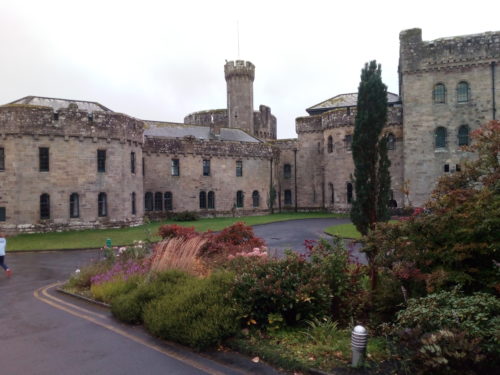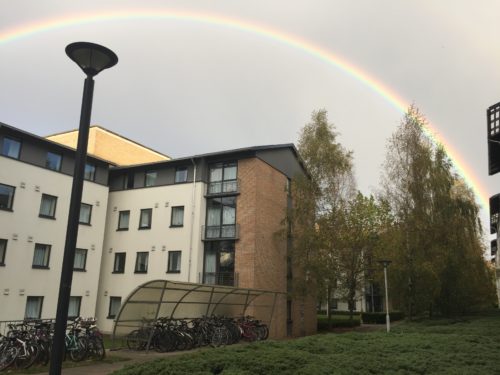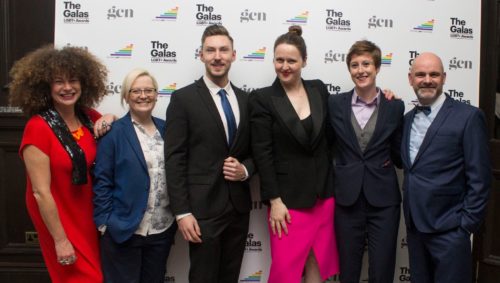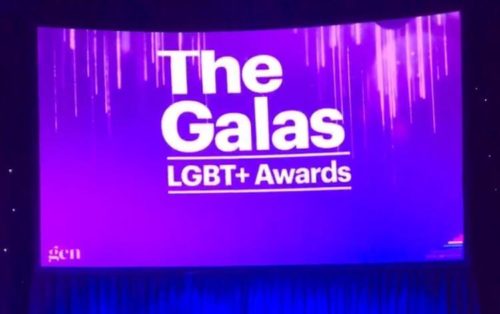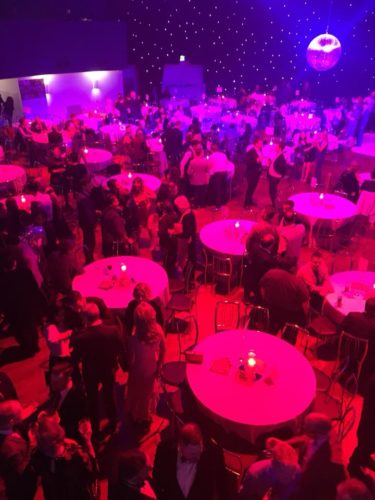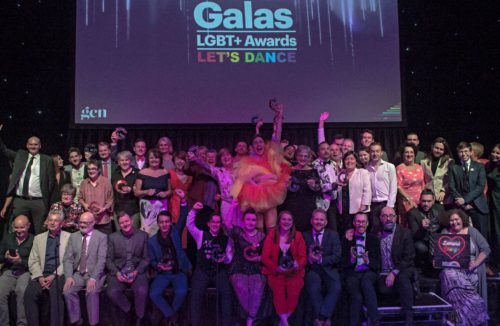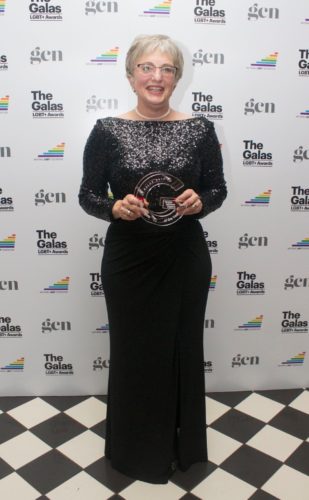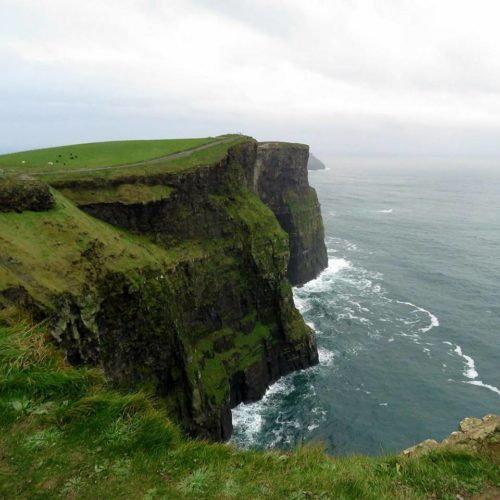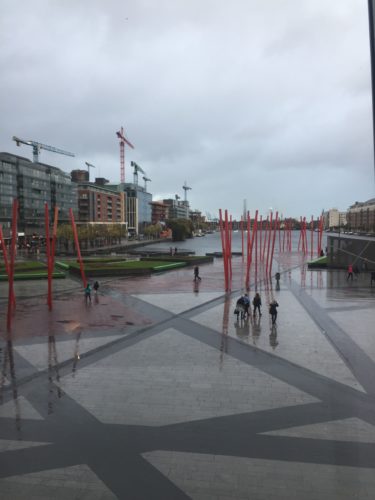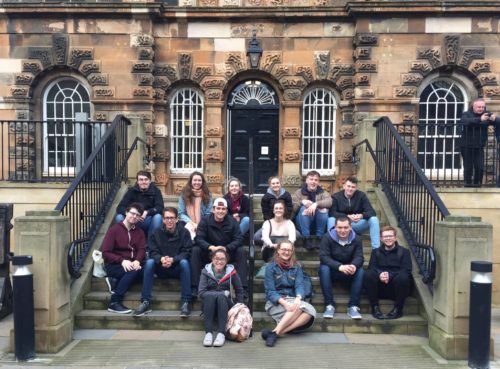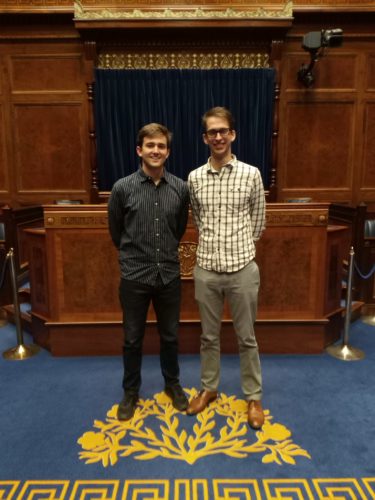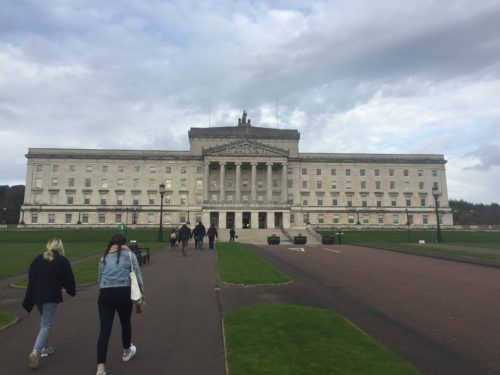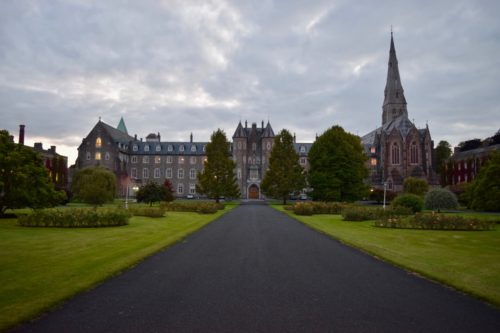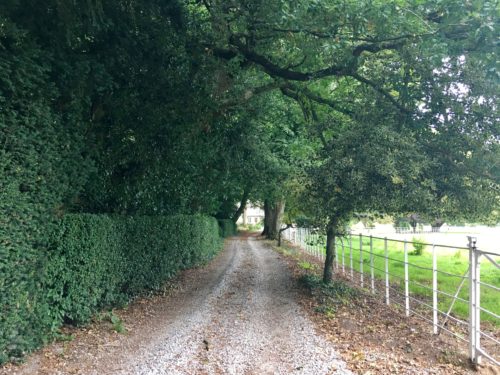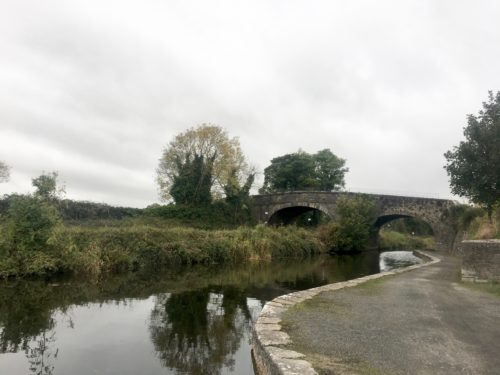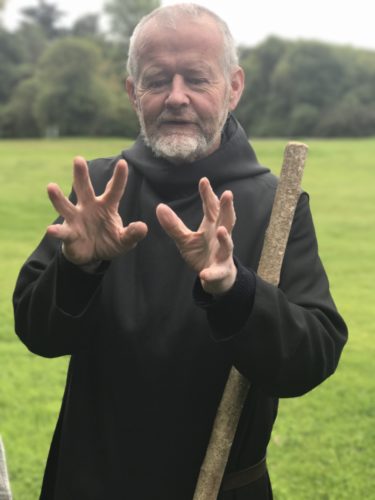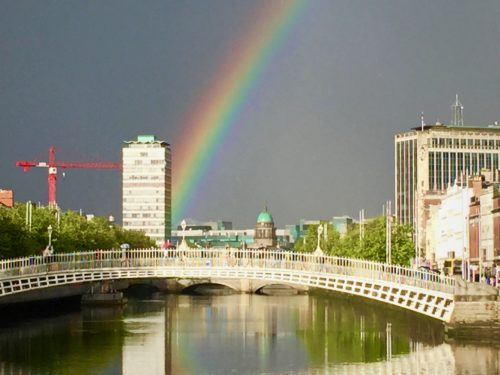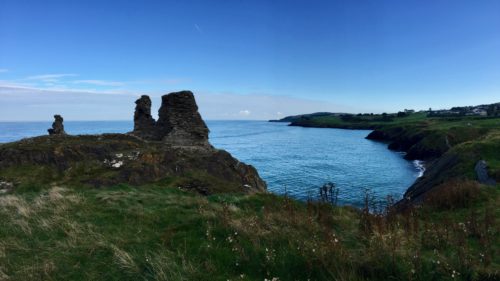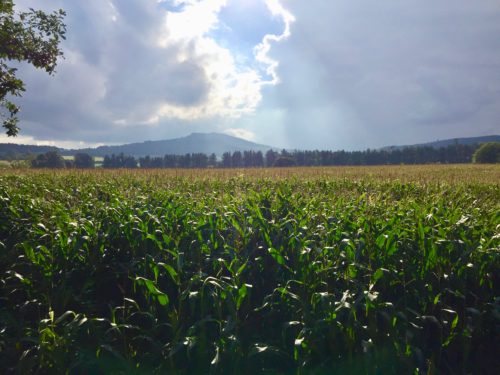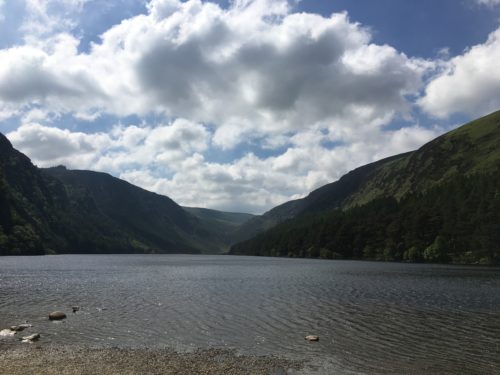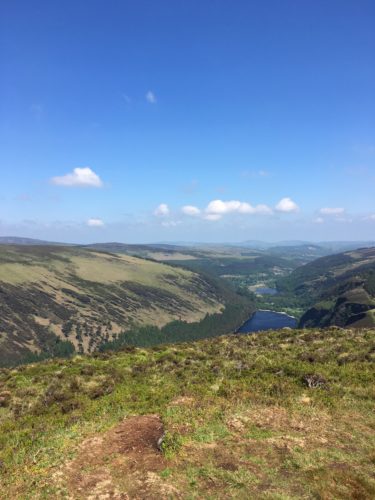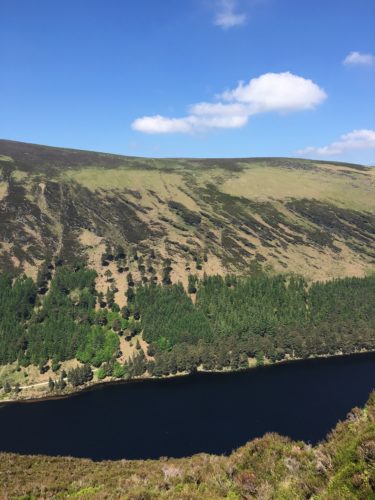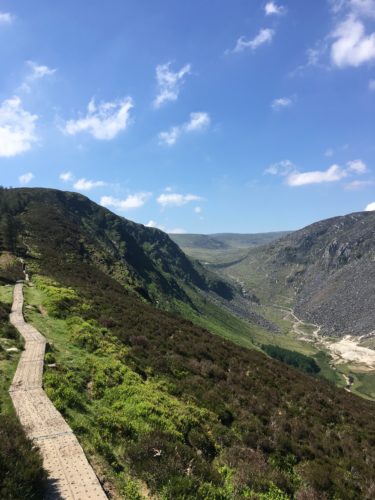Standing at the toppings counter and facing the ever-difficult decision of brownie bits or chocolate chips (or, dare I say, both?), I felt my phone start to vibrate. With a mixture of dread and excitement, I looked at the caller ID. Just what I thought – it was the phone call I’d been waiting for; the one that would let me know whether or not I would be heading to Ireland next year as one of twelve Mitchell Scholars. Sending a nervous look my mom’s way and getting a confused look from the teenage frozen yogurt shop worker, I dropped my carefully-arranged cup to the counter and rushed out of the store. Just outside, I took a deep breath, tried to control my shaking voice, and answered. The second I heard the word “congratulations,” everything stopped and sped up at once. I was selected; I was a Mitchell Scholar; I was moving to Ireland! But wait, where did they say I was going? “Any other immediate questions?” suddenly came from the other end of the phone. “Um, uh, yes, sorry. I was too shocked and excited, and I didn’t actually hear…where in Ireland did you say I was going again?” Through some muffled laughter, I heard the name of my future home: Galway. I like to think I thanked them again over the phone, but my memory is a bit of a blur of excitement. I do remember going into the frozen yogurt shop where my mom was anxiously trying to read my face and announcing to her (and presumably the rest of the frozen yogurt consumer population) that I would be going to Ireland! Needless to say, it was a celebration moment more than deserving of both brownie bits and chocolate chips.
Flash forward a few hours, I was in a hotel room with my parents calling various relatives to tell them the news when the official press release listing all twelve winners was released. I was thrilled to see the final group filled with new friends I had made during the interview weekend, but as I read through the list I realized something. I would be the only Mitchell Scholar next year in Galway. I was still absolutely thrilled to know I would be there next year, already enamored with the Salthill Promenade before ever walking it, already awed by the buskers on Shop Street before ever listening to them, but suddenly a small seed of fear settled in beside my excitement – after four years of undergrad with a consistent support system built on expanding existing connections, how would I find a new group alone in not only a new city but a new country? The excitement outweighed the nerves, but nevertheless that small fear persisted throughout the months preparing for my departure.
Suddenly it was somehow mid-August, and I found myself stepping out of the (unnaturally wrong left side) passenger side of a car onto a sunny dock. Jet-lagged and slowed down by suitcases, I rang the designated number on the keypad and an excited, familiar voice came down, “WELCOME TO GALWAY; I’M SO EXCITED TO FINALLY MEET YOU IN PERSON; COME RIGHT UP.” I emerged into the apartment which would soon become my home and into the arms of one of its current residents Azza Cohen, one of the Class of 2017 Mitchell Scholars. Over the next few days, she and her sister showed me around Galway covering essentials ranging from phone plans and groceries to making sure I had my first 99 ice cream cone. As they guided me through the city, we eventually arrived at the university. NUI Galway is a dual language campus with almost all signs in both English and Irish. As she told me about campus life and her experiences as a student, I stopped Azza and her sister on the walking bridge into campus so that I could take a picture of a sign. On one of the posts, the university advertises its status as “Ranked in the top 1% of universities worldwide.” An impressive feat worthy of notice, the sign itself didn’t strike me as out of place. What interested me was not the fact, which I had known already, but the Irish: Rangaithe i measc an 1% is fearr d’ollscoileanna an domhain. Due to its spacing on the sign, I found myself in a new city, trying to get my bearings, approaching the imminent departure of my only guides, and facing a sign the top of which to me looked like it was telling me, “1% is [fear].” Laughing, I took my picture, captioned it “are they sure it’s only 1%,” sent it to my friends back home, and continued on with our tour of Galway.
While at the time I thought little more of the sign than a brief laugh, its message has stuck with me in ways I didn’t then realize. On the night before their departure back to the states, Azza, Daniella (her sister), and I took a walk along the Claddagh at sunset. Bathed in soft purple light, I was expecting a reserved quiet reflective walk. Daniella, however, had one more dream to accomplish in Galway – she wanted to busk on the streets with her ukulele. The only problem was that she absolutely did not want to sing. Knowing from the safety and comfort of the apartment that I knew the words to one of the songs she was able to play, she stopped mid-walk, opened her case, put it on the ground, and began to play. Already feeling myself blush an incredible shade of red, I looked up to see her staring at me waiting for me to sing with her in public for all to hear. Nervously laughing and refusing, all I wanted to do was retreat. Then suddenly, unexpectedly, I had one clear thought: “1% is fear.” Cliched as it may be, in that moment I realized that if I was going to make the most of this year and really embrace my new home and university, especially once Azza and Daniella departed, I couldn’t retreat into the safety of what felt comfortable. I would have to put myself out there; I’d have to do things that I feared. “1% is fear…1% is fear…1% is fear…” I listened to her playing, waited for the cue, opened my mouth, and sang. While that was both the beginning and end to my brief busking career, we managed to make 20 cents for our efforts, and that coin has stayed on my nightstand ever since. A reminder to myself as I came into my new home to welcome the things that I was afraid of, to put myself out there even if I wasn’t perfect at what I was attempting, to embrace aspects of this new place that I never thought I could.
In the two months since then, I’ve walked past that same sign countless times coming to and from campus, and I’ve tried to live by its (albeit unintentional) message in ways that I never expected. Like many of my fellow Mitchell Scholars from this year and others, I knew myself as a planner, a perfectionist of sorts who approached things with clear steps, goals, and knowledge of the situation. These were skills that felt comfortable to me; they had gotten me far and enabled some of my greatest accomplishments. Yet in the past two months, some of my most rewarding moments have come from the times when I quieted my racing thoughts, pushed aside my need to be perfect at and in control of whatever I was attempting, and followed the quiet voice slowly repeating, “1% is fear.” Without that voice, I never would have accepted a spontaneous trip to Connemara. I never would have found myself celebrating Galway’s victory at hurling, a sport I found I loved despite never having heard of it only a month before. I would have never laughed the night away while being taught how to make Mayo plaits by a new friend as she prepared to go to the Gaelic football final to support her team, and I definitely never would have been found wearing it in a pub the next day to watch the match and getting friendly elbow nudges from an elderly Mayo resident on the stool next to me whenever points went our way. I wouldn’t have enrolled in optional modules I felt I had the least amount of background knowledge in that I’ve come to love. I wouldn’t have gone for an interview for a job at the Academic Writing Center on campus which has now come to give me some of the most rewarding experiences of my time in the library at NUIG. And without embracing my own fear of discomfort and even failure, I absolutely never would have taken up a new sport and joined the NUIG Fencing Club which has become not only a hobby I love but given me a family away from home full of laughter, advice, support, and joy both inside the gym and beyond.
Without embracing the portion of this experience that relied on moving past my own fears, I never would have found myself mid-competition looking up through a fencing mask at the stands of the University College Cork gym to see the faces of Mitchell Scholars who had hosted me in Cork and travelled from Dublin to support me there alongside those of my new fencing family all smiling encouragingly at me while I tried something brand new to me. “En Garde” I took a deep breath. “Ready” I reminded myself that 1% is fear. “Fence!” And, moving forward, I embraced it.
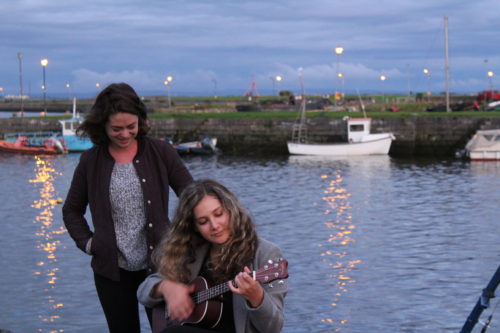
Me and Daniella making our way to busking fame
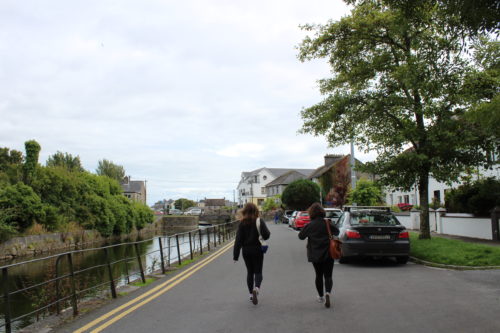
Walking through Galway with Azza
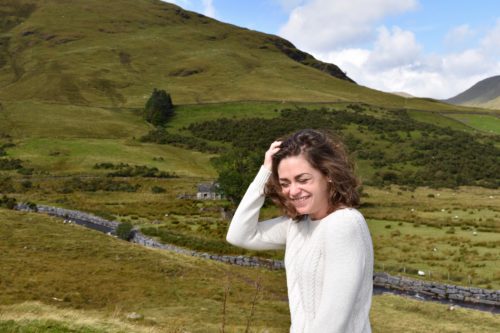
Enjoying the scenery near Leenane
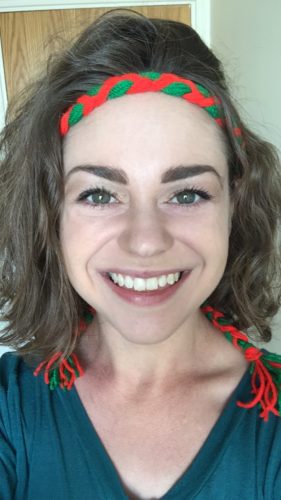
Supporting Mayo! (If you don’t already know, then don’t ask about the final score)
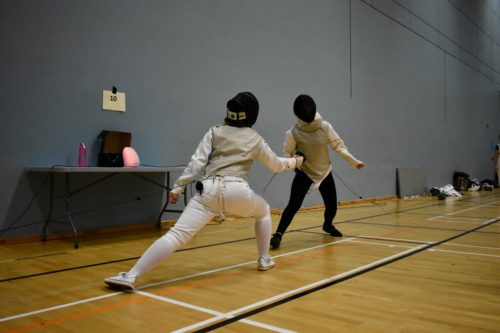
Fencing at Wests, hosted at home at NUIG
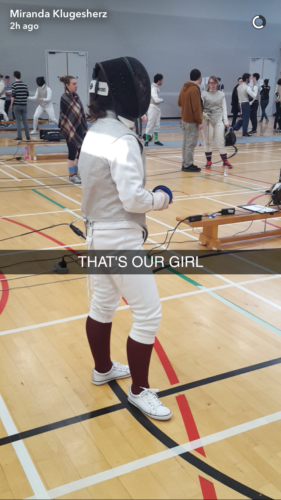
Ready to fence at UCC (with supportive photos taken and captioned by fellow Mitchell Scholar Miranda)

